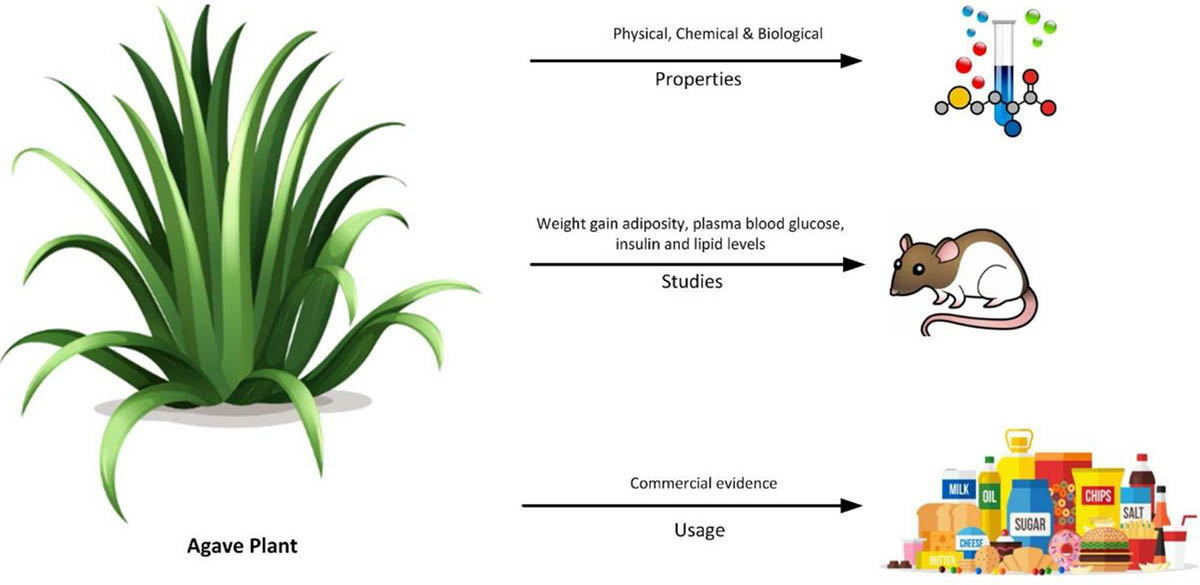Agave syrup as a replacement for sucrose: An exploratory review
DOI:
https://doi.org/10.31989/ffhd.v12i10.1003Abstract
Sucrose in its various forms has become an important part of our daily intake. Apart from sweetness, it also provides structure, and stability and plays important role in the appearance of the final product. Sucrose is widely used in the production of sweets, desserts, and beverages, however, the various effects of high consumption of sucrose, such as obesity, type 2 diabetes, and cardiometabolic disorders are of concern. Thus, in the present review, we have tried to summarize the usability of an alternative to sucrose. We explore the possibility of Agave, a native plant from Mexico, and its by-products (Agumiel, Agave syrup, etc) as a healthy alternative to sucrose in the food industry in this paper. This study uses Google scholar to review the history, properties, production, regulations, studies, and commercial adaptation of Agave in different food products. Chemical, physical, and biological properties are explored of the two most widely used varieties (Agave Tequilana & Agave Salmiana). The findings indicate that Agave has a long consumption history. Though the production is being regulated by the Mexican government, adulteration and fake labels are a concern. Recent animal studies have proved its safety, while long-term human benefits could be the scope of future studies. The authors conclude that Agave has good potential to replace sucrose shortly although long-term health benefits need acute exploration for it to be a suitable substitute for sucrose in order to reduce the risk of diet-related disorders.

Keywords: Agave; Natural sweeteners; Sucrose replacement; commercialization; New product development.
Downloads
Published
Issue
Section
License
Any manuscripts or substantial parts of it, submitted to the journal must not be under consideration by or previously published in any other journal or citable form. Authors are required to ensure that no material submitted as part of a manuscript infringes existing copyrights or the rights of a third party. In submitting one's article in any form, the author has assigned the FFC publishing rights and has agreed to an automatic transfer of the copyright to the publisher. This is so that the FFC may create print option journals, for example, at the FFC’s discretion. If the author wishes to distribute their works by means outside of the FFC, for example within their community, they will have to place a request.
Correspondence concerning articles published in Functional Foods in Health and Disease is encouraged. While derivative works (adaptations, extensions on the current work, etc.) are allowed, distribution of the modified material is not allowed without permission from the FFC.